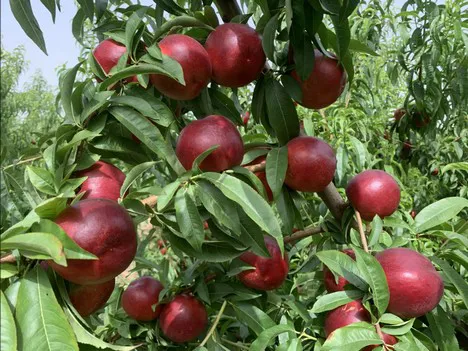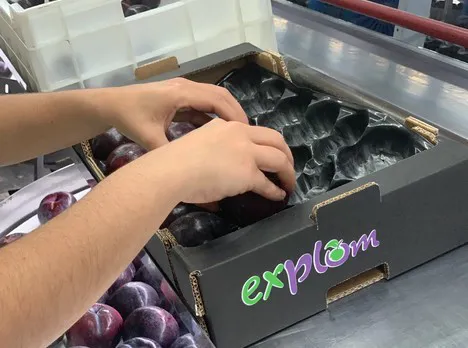The stone fruit harvest has started in the Spanish province of Badajoz with a few days delay compared to last season. The first peaches, nectarines and apricots are already being harvested, although still in small quantities. The harvest of plums, the most representative product within the stone fruit range in Badajoz, will start next week.

"We won't have consistent quantities of fruit until next week," says José Aurelio García, manager of the Explum cooperative. "The harvest of the first plums, our most important product in terms of volume, will start next week with some unrepresentative varieties. Not until the second week of June will we have good volumes of the Black Splendor. In any case, that's when the demand usually starts to pick up."
According to the grower and marketer, the stone fruit harvest is starting with yields typical of a normal season, without excess production. Yellow plums will be the exception, as the Golden Globe variety will suffer a decrease in terms of volume.
"Compared to other Spanish producing areas, Extremadura has not been affected by frost or hail. Our productions are currently overlapping with those of Murcia, which is increasingly extending its harvesting schedule. This year, we will hardly overlap with Lleida and Aragón, since they have lost around 70% of their harvest due to frost", says José Aurelio García.

"We should therefore see smoother marketing, although in the case of plums, this will not have much of an impact, since we will also be competing with local productions of many of the countries to which we export, where their crops have not suffered any mishaps," he says. "This year, compared to the previous one, Italy has quite a lot of Angeleno plums. We will also be competing with this country, as well as with France and Greece, in the markets of the rest of stone fruit species. We still don't know what will happen this season, but it looks like it could be an interesting one for nectarines and peaches."
Inflation and the consequent rise in production costs is perhaps the biggest concern for the stone fruit sector this year. "I wonder if this cost increase will be compensated in all links of the chain, and whether this will be reflected in the selling price, considering that plums, for example, are a commodity product."
Explum exports its fruit mainly to European markets, although it also ships overseas in the case of plums, something that has become even more challenging this year. "Hiring containers has become extremely expensive, with the cost of shipping to Mexico going from around 6,000 Euro last year to more than 14,000 this year, to give an example. If things work out in the European market, I don't think there will be many exports to overseas destinations, considering the risks involved," he says.
 For more information:
For more information:
José Aurelio García
Explum SC
T: +34 924446338
M: +34 615289854
[email protected]
www.explumsc.com
